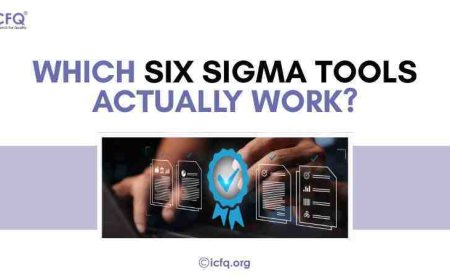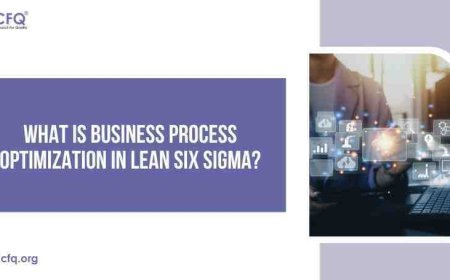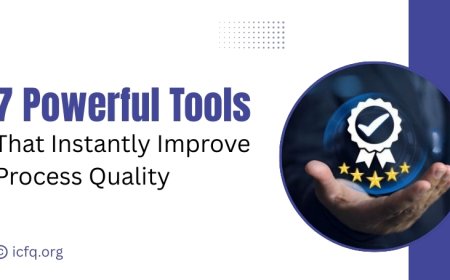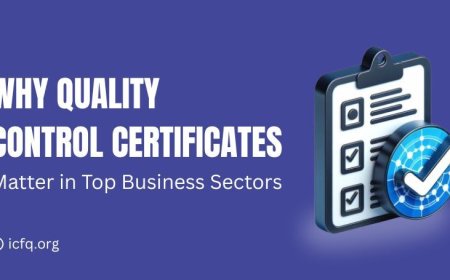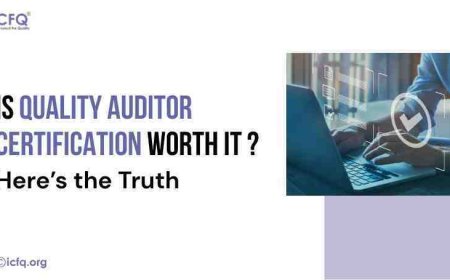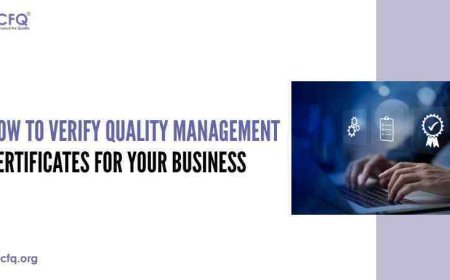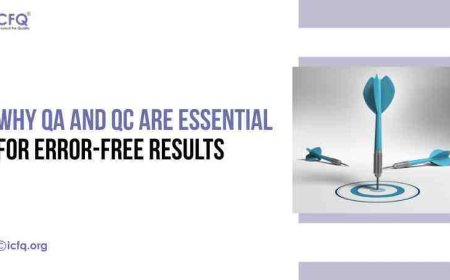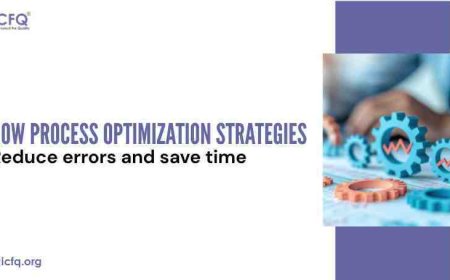How ESG Reporting Certification Enhances Value?
Learn how ESG Reporting certification boosts company trust, efficiency, and investor confidence while supporting sustainable business growth.
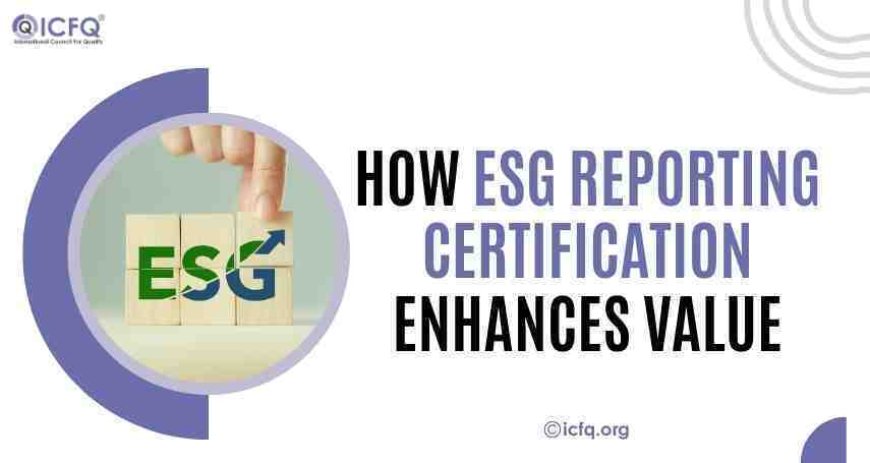
Running a business today is not just about profits; it’s also about being responsible toward the environment, society, and good governance. Have you ever wondered how ESG practices can improve your company’s reputation and growth? Can proper ESG reporting help attract investors and build trust with customers?
Recent data highlights the importance of ESG reporting. Companies with verified ESG Reporting attract 30% more investment from investors, as transparency builds confidence. ESG-certified firms also enjoy 20% lower costs of capital and clear reporting of their practices.
What Is ESG Reporting Certification
ESG Reporting Certification is an official recognition that a company’s Environmental, Social, and Governance (ESG) practices are measured, monitored, and verified according to established standards. It shows that the company is transparent about its sustainability and ethical practices, and that the reported ESG data has been independently reviewed for accuracy and credibility.
In simpler terms:
-
Environmental: How the company manages energy, waste, and emissions.
-
Social: How it treats employees, communities, and customers.
-
Governance: How it runs ethically, follows rules, and manages risks.
Achieving ESG reporting certification assures investors, customers, and stakeholders that the company is responsible, sustainable, and trustworthy in its operations.
Why ESG Reporting Certification Matters
Achieving an ESG Compliance Reporting certification goes beyond voluntary disclosure; it signals that a company’s sustainability and governance practices are verified by independent third parties. Here’s why it matters:
-
Builds Investor Confidence
Investors are increasingly using ESG data and ESG fund opportunities to make informed decisions. Certified Green Belt assures investors that the company is transparent, accountable, and committed to long-term value creation.
-
Enhances Brand Reputation
Consumers and clients are more likely to trust ESG companies with verified ESG practices. Certification differentiates businesses in competitive markets and aligns them with growing demands for sustainability.
-
Improves Operational Efficiency
ESG Compliance Reporting encourages companies to monitor energy use, waste reduction, and social responsibility initiatives. Optimizing these processes can lead to significant cost savings and operational improvements.
-
Ensures Regulatory Compliance
Many regions now require disclosure of ESG-related practices. Certification demonstrates compliance with legal and industry requirements, reducing the risk of penalties or reputational damage.
Core Components of ESG Reporting
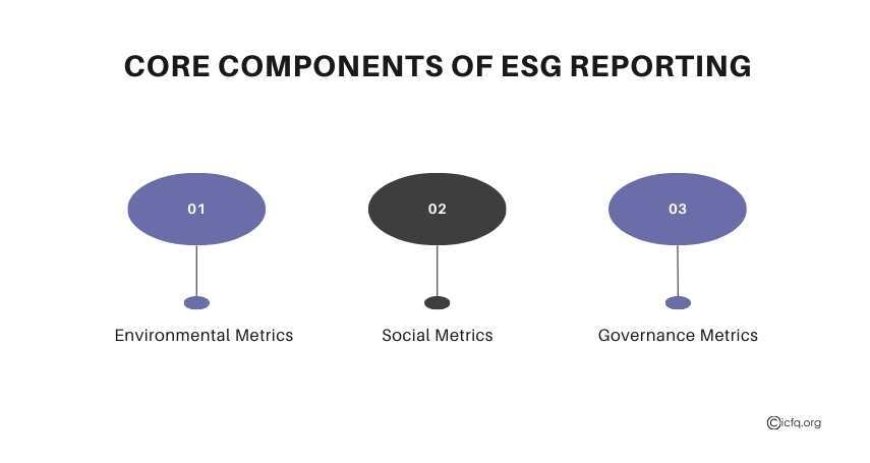
1. Environmental Metrics
These measures show how a company impacts the environment. Examples include:
-
Energy use and efficiency
-
Carbon emissions and greenhouse gases
-
Waste management and water usage
2. Social Metrics
These focus on how a company treats people and communities. Examples include:
-
Employee health, safety, and satisfaction
-
Diversity, equity, and inclusion initiatives
-
Community engagement and social programs
3. Governance Metrics
These track how a company is managed ethically and responsibly. Examples include:
-
Board structure and oversight
-
Ethical business practices and quality audit compliance
-
Risk management policies
By tracking these three areas, companies can show stakeholders that they operate responsibly, sustainably, and transparently using a recognized ESG framework.
Business Benefits of ESG Reporting Certification
-
Attracts Investment
Certified ESG Compliance Reporting builds trust with investors, showing that the company is transparent and committed to sustainable practices, which can lead to more funding and interest from ESG funds.
-
Reduces Risks
By monitoring environmental, social, and governance factors, companies can identify and prevent potential issues, avoiding fines, legal problems, and reputational damage.
-
Boosts Customer Loyalty
Clients and customers prefer to work with ESG companies that are socially and environmentally responsible. ESG certification strengthens brand reputation and loyalty.
-
Encourages Innovation
Tracking ESG metrics often leads to new ideas for energy efficiency, waste reduction, and employee engagement, improving overall business performance.
Steps to Achieve ESG Reporting Certification
-
Assess Current Practices
Review your company’s existing environmental, social, and governance policies to see where you stand and identify areas for improvement.
-
Define ESG Goals
Set clear, measurable objectives for sustainability, social responsibility, and governance aligned with global ESG frameworks.
-
Implement ESG Policies
Put processes in place, assign responsibilities, and ensure your team follows ESG best practices consistently.
-
Collect and Monitor Data
Track key ESG data, such as energy use, diversity initiatives, and compliance activities, to measure progress.
-
Engage Certification Bodies
Work with accredited organizations to audit your ESG practices and verify your reporting.
-
Continuous Improvement
Regularly update policies, monitor results, and refine practices to maintain certification and improve ESG performance over time.
Challenges in ESG Reporting
-
Collecting Accurate Data
Gathering reliable information on environmental, social, and governance activities can be difficult, especially for large companies with multiple locations.
-
Standardization Issues
Different ESG frameworks and reporting standards can make it hard to present consistent and comparable information.
-
Limited Resources
Smaller businesses may not have dedicated ESG teams or expertise, making it challenging to implement and maintain reporting practices.
-
Keeping Up with Regulations
ESG requirements are constantly changing, and staying compliant with new rules can be complex and time-consuming.
-
Stakeholder Expectations
Balancing the demands of investors, customers, and regulators while maintaining realistic ESG goals can be challenging for many organizations.
ESG reporting certification is now very important. It helps companies build trust, work more efficiently, and attract investors. By using certified ESG reporting, businesses can reduce risks, earn stakeholder confidence, and grow steadily over time.
If your business wants to start ESG practices and get ESG reporting certification, professional guidance can make the process easier.
For guidance and support, contact: [email protected]


